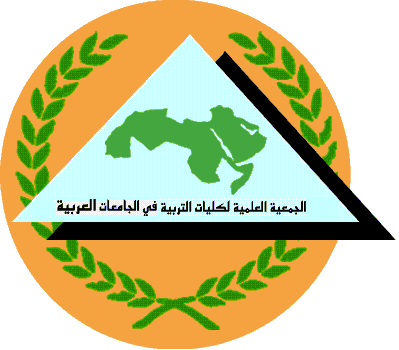Association of Arab Universities Journal for Education and Psychology

Abstract
لقيت عمليات تطوير التدريس اهتماما كبيرة في عصر العلم والانفجار المعرفي، والتعلم الإليكتروني، وذلك في محاولات مستمرة لضمان الارتقاء بمهارات الطلبة المكتسبة وتحويلها إلى مهارات إبداعية، في سبيل تقديم تعلم مميز.
وهذا يعني أن مواكبة التقدم العلمي بالضرورة تؤدي إلى التفكير في تطوير عمليات تدريس الفنون الجميلة والتطبيقية بالمستوى نفسه الذي تدرس به العلوم الأخرى، وذلك من خلال دمج تقنيات التعلم الإلكتروني في عمليات التدريس لتطوير مهارات الطلبة الإبداعية.
وتعد دراسة الفنون الجميلة والتطبيقية الآن من أهم ركائز التطور في المجتمعات الحديثة والمعاصرة. ولا يمكن إغفال أهميتها مستقبلا من أجل عالم يتسم بمظاهر الجمال، والابداع، والرقی، ومن أجل الوصول إلى ذلك الهدف وجب علينا تطوير عمليات تدریس الفنون من طرائقها التقليدية إلى مستويات أرقی عن طريق التعلم الإلكتروني دون الاستغناء تماما عن دور الخبرات الشخصية، والتجارب من أجل تطوير المهارات الإبداعية للطلبة.
ومما لاشك فيه أن مقررات الفنون، ومفاهيمها تحتاج في شرحها ، وتفسيرها إلى خبرات حسية متعددة، ومتنوعة، إذ أن نظم التدريس التقليدية تقصر أحيانا في في تقديم الجواب الشافي لكثير من تساؤلات الطلبة، وتحرمهم من خبرات متعددة يمكن أن ينالوها إذا تحققت فكرة هذا البحث في تحقيق (أتيليه أواستوديو) افتراضي أليكتروني يتم من خلاله اتصال الطالب بكليات الفنون، أو معظمها في العالم والاستفادة من تجاربها، أو من تجارب الأساتذة المحليين في الجامعات المختلفة في إطار القطر الواحد إضافة إلى ممارسة عمله في «الأتيليه استوديو الإنتاج من خلال برامج أليكترونية تحقق له الخبرة والمتعة بأقل التكاليف الممكنة.
Teaching development processes have received great attention in the era of science, knowledge explosion, and e-learning, in continuous attempts to ensure the upgrading of students’ acquired skills and transforming them into creative skills, in order to provide distinguished learning.
This means that keeping pace with scientific progress necessarily leads to thinking about developing the teaching processes of fine and applied arts at the same level as other sciences, by integrating e-learning techniques into the teaching processes to develop students' creative skills.
The study of fine and applied arts is now one of the most important pillars of development in modern and contemporary societies. And its importance in the future cannot be overlooked for a world characterized by manifestations of beauty, creativity, and sophistication. Creative skills of students.
Undoubtedly, arts courses and concepts require in their explanation and interpretation of multiple and varied sensory experiences, as traditional teaching systems sometimes fail to provide a satisfactory answer to many of the students’ questions, and deprive them of multiple experiences that they can obtain if the idea of this research is realized in A virtual electronic (atelier or studio) achievement through which the student contacts art colleges, or most of them in the world and benefit from their experiences, or from the experiences of local professors in different universities within the same country, in addition to practicing his work in the “Atelier production studio through electronic programs that verify his Experience and fun at the lowest possible costs.
Recommended Citation
مدني, محمد عطا and زباري, نبيلة جاسم
(2022)
"تصور مقترح لاستوديو افتراضي الكتروني لصقل مهارات الابداع لطلبة كليات الفنون التشكيلية. A proposed conception of an electronic virtual studio to hone creativity skills for students of faculties of fine arts.,"
Association of Arab Universities Journal for Education and Psychology: Vol. 14:
Iss.
1, Article 6.
Available at:
https://digitalcommons.aaru.edu.jo/aaru_jep/vol14/iss1/6

